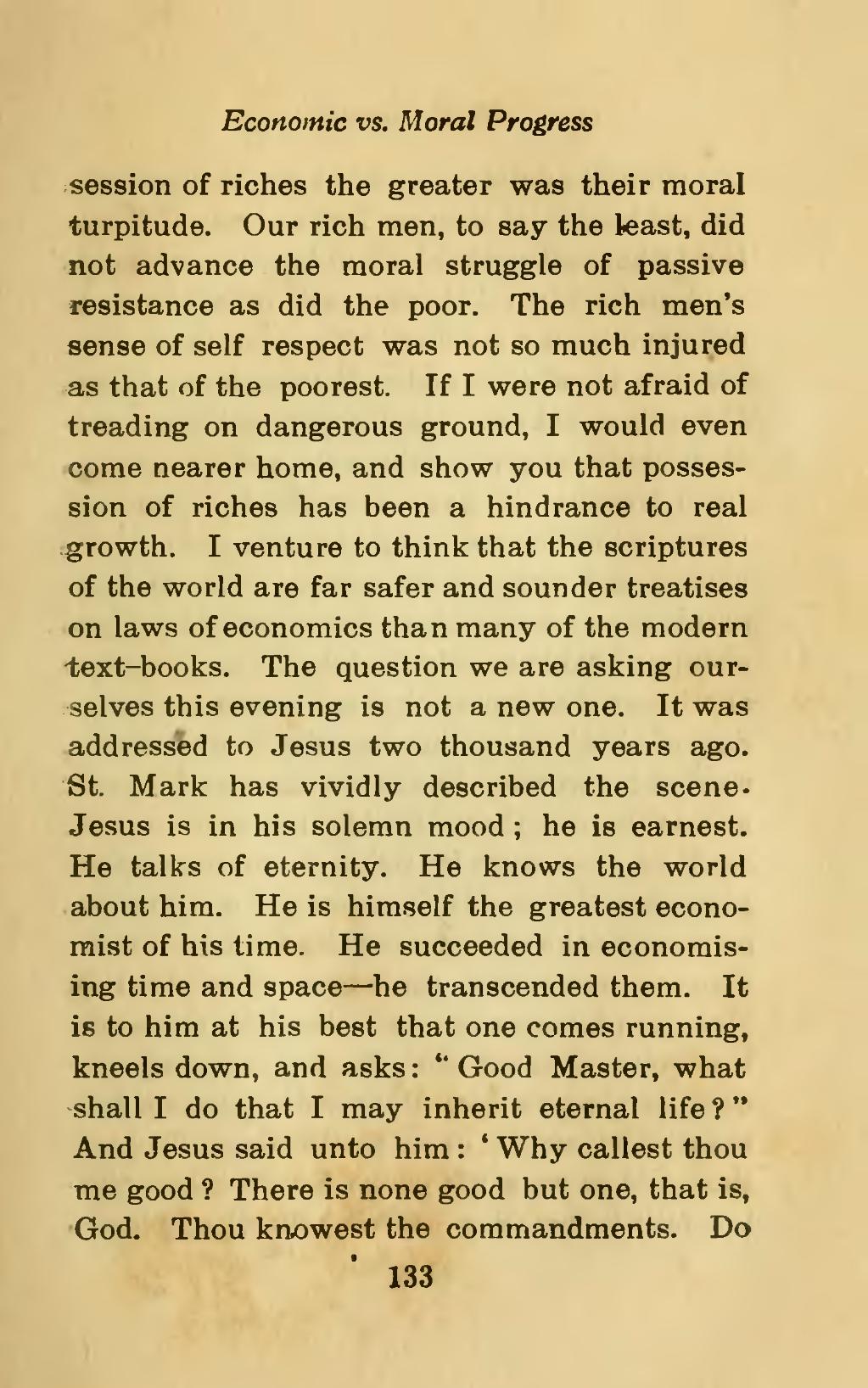Economc vs. Moral Progress
session of riches the greater was their moral turpitude. Our rich men, to say the least, did not advance the moral struggle of passive resistance as did the poor. The rich men's sense of self respect was not so much injured as that of the poorest. If I were not afraid of treading on dangerous ground, I would even come nearer home, and show you that possession of riches has been a hindrance to real growth. I venture to think that the scriptures of the world are far safer and sounder treatises on laws of economics than many of the modern text-books. The question we are asking ourselves this evening is not a new one. It was addressed to Jesus two thousand years ago. St. Mark has vividly described the scene. Jesus is in his solemn mood; he is earnest. He talks of eternity. He knows the world about him. He is himself the greatest economist of his time. He succeeded in economising time and space—he transcended them. It is to him at his best that one comes running, kneels down, and asks: "Good Master, what shall I do that I may inherit eternal life?" And Jesus said unto him: 'Why callest thou me good? There is none good but one, that is, God. Thou knowest the commandments. Do
133
